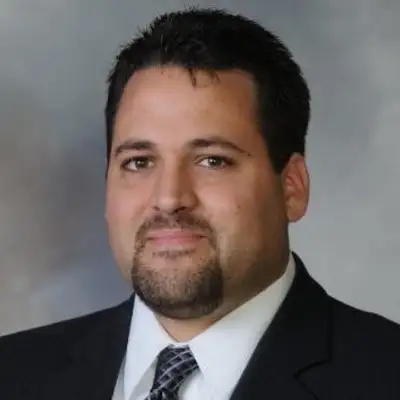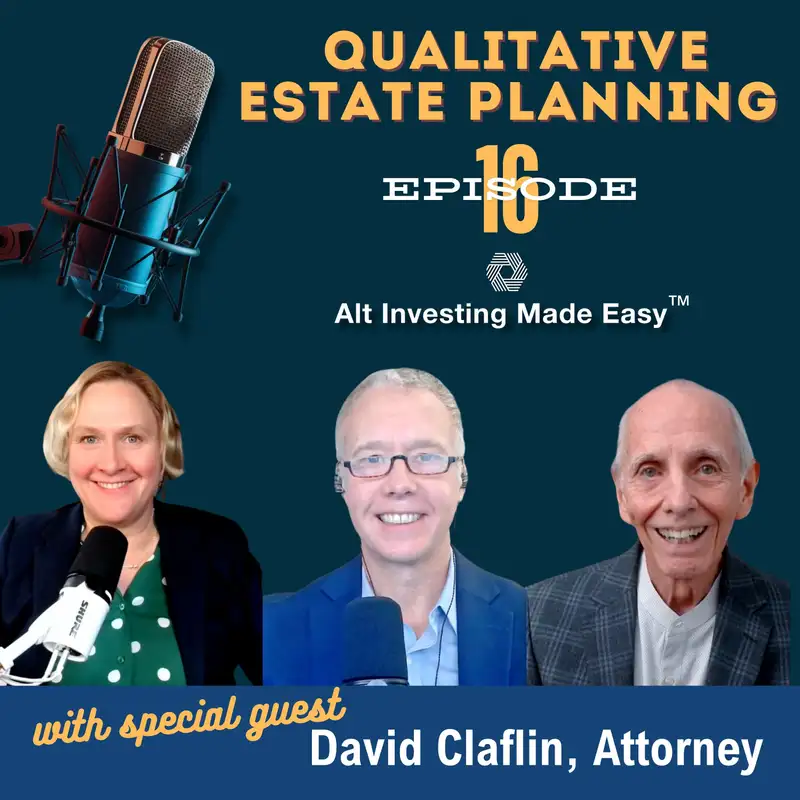E16: Qualitative Estate Planning - Interview with David Claflin, Attorney
In this conversation, Sarah Florer, David Claflin, and Roland Wiederaenders delve into the intricacies of estate planning, focusing on the qualitative aspects that often get overshadowed by quantitative measures. David shares his unique journey into estate planning, emphasizing the importance of understanding the 'why' behind wealth transfer. The discussion explores the generational challenges of wealth, the significance of communication within families, and how cultural perspectives shape our understanding of wealth management. They also touch on the influence of media portrayals of wealth and family dynamics, highlighting the need for a more holistic approach to estate planning that considers emotional and relational factors. In this conversation, the speakers delve into the intricate relationship between wealth planning and family dynamics, emphasizing the importance of communication, mental health, and governance structures in ensuring the successful transfer of wealth across generations. They explore the qualitative aspects of wealth, including human, intellectual, social, and spiritual capital, and how these can be integrated into estate planning to foster well-being and healthy family relationships. The discussion highlights the need for a shift in perspective regarding wealth, moving beyond financial metrics to encompass a broader understanding of what it means to be wealthy.
Summary of Key Takeaways:
In the framework pioneered by James (“Jay”) E. Hughes Jr. there are five basic types of capital (wealth) to consider in qualitative estate planning:
- Human capital (wealth)
- Intellectual capital (wealth)
- Social capital (wealth)
- Spiritual capital (wealth)
- Financial capital (wealth)
Jay’s books are available below:
If you would like to know more or have a conversation, please reach out to:
David Claflin, Attorney
Board Certified, Estate Planning and Probate Law, Texas Board of Legal Specialization
Credits and Contacts:
Sponsored by:
Real Advisers, Austin, Texas
Real Advisers, Austin, Texas
Special thanks to:
For more information: AltInvestingMadeEasy.com
Please contact us: info@AltIvestingMadeEasy.com
Roland Wiederanders: Roland@grablemartin.com
Sarah Florer: sflorer@grablemartin.com
Disclaimer: “This production is for educational purposes only and is not intended as investment or legal advice.”
© 2024 AltInvestingMade Easy.com LLC All rights reserved
Takeaways
- David Claflin transitioned to estate planning later in life, bringing a unique perspective.
- Qualitative aspects of estate planning are as important as quantitative measures.
- Understanding the purpose behind wealth transfer is crucial for effective planning.
- Generational wealth can lead to challenges if not managed with intention.
- Communication within families is key to successful wealth transfer.
- Cultural perspectives influence how families approach wealth and planning.
- Media representations of wealth can reflect real-life family dynamics.
- Mission-driven wealth building can enhance the purpose of financial planning.
- The importance of relationships in preventing wealth from dissipating across generations.
- Estate planning should focus on enhancing overall well-being, not just financial metrics. Establishing a communication framework is essential for effective wealth planning.
- Mental health plays a crucial role in family wealth dynamics.
- Creating a family governance structure can enhance communication and relationships.
- Integrating psychological well-being into wealth planning is vital for long-term success.
- Qualitative aspects of wealth, such as human and social capital, are as important as financial wealth.
- Wealth should be viewed as well-being rather than just financial assets.
- Healthy family communication leads to healthier financial decisions.
- A family charter can guide future generations in wealth management.
- Wealth building can encompass spiritual and emotional dimensions.
- Long-term relationships with clients can facilitate deeper discussions about wealth and values.
Chapters
00:00 Introduction to Estate Planning and Personal Stories
03:08 The Transition to Estate Planning
06:01 Qualitative vs. Quantitative Estate Planning
09:02 Mission-Driven Wealth Building
12:05 Generational Wealth and Family Dynamics
15:06 The Importance of Communication in Wealth Transfer
18:06 Cultural Perspectives on Wealth and Planning
21:07 The Role of Qualitative Aspects in Wealth Management
24:03 Media Reflections on Wealth and Family Dynamics
32:51 Establishing a Communication Framework for Wealth Planning
39:41 The Role of Mental Health in Family Wealth Dynamics
42:23 Creating a Family Governance Structure
51:31 Integrating Wealth with Psychological Well-Being
56:24 Exploring the Qualitative Aspects of Wealth
Creators and Guests

Host
Roland Wiederaenders
Co-founder of the Alt Investing Made Easy podcast, investment advisor, and corporate securities attorney with expertise in private investment funds, corporate/securities issues, mergers and acquisitions, partnership structuring, and federal income tax matters. Roland is also a member of Grable Martin PLLC.

Host
Sarah Florer
Co-founder of the Alt Investing Made Easy podcast, investment advisor, and corporate attorney with expertise in corporate finance and securities, structuring and restructuring, and commercial matters. Sarah is also a member of Grable Martin PLLC.

Producer
Anthony Carrano
Co-founder of the Alt Investing Made Easy podcast, fractional Chief Marketing Officer, entrepreneur, and Managing Partner at Dunamis Marketing.

